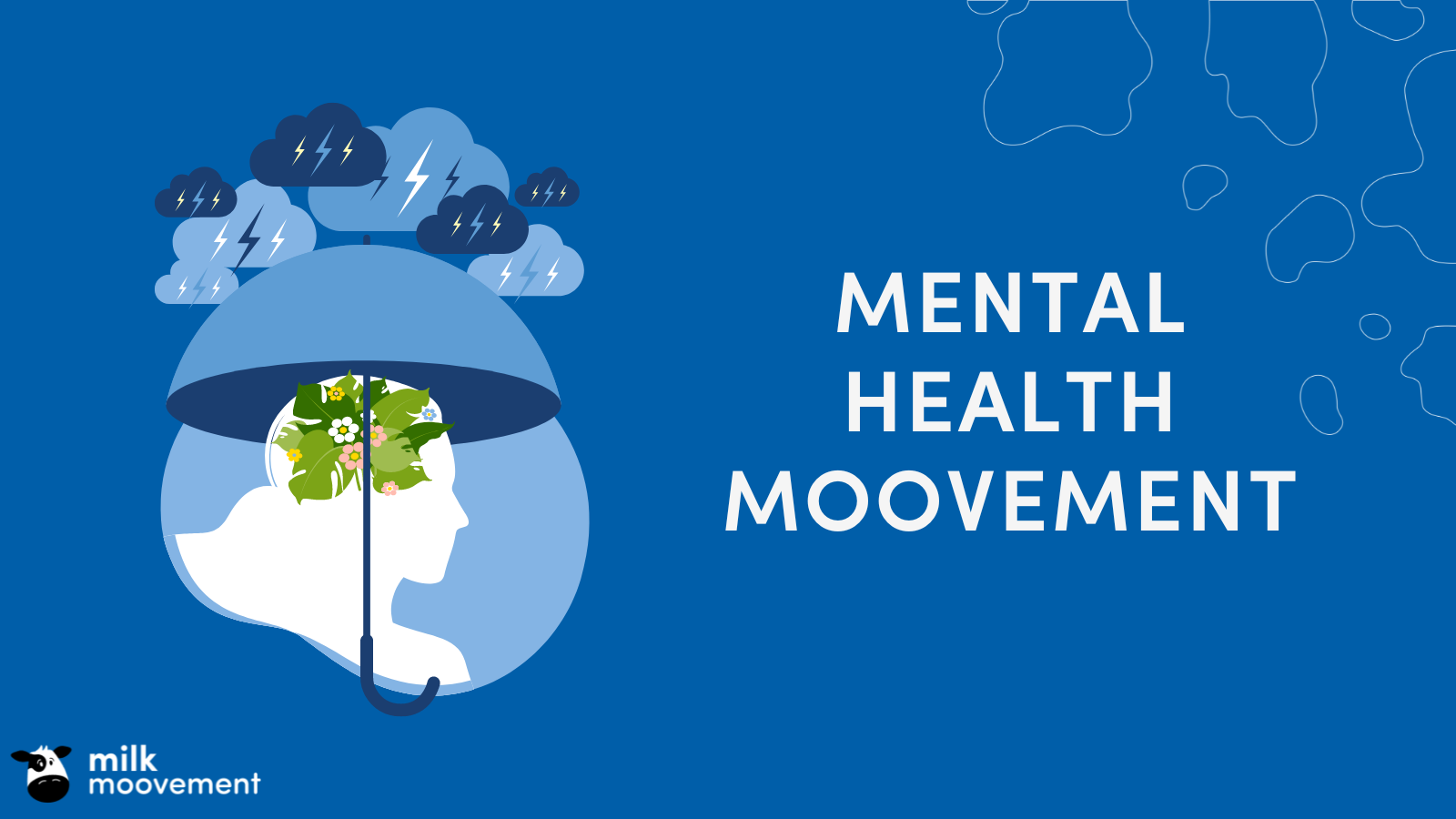Mental Health in Agriculture
.png)
Every year, we recognize mental health on #BellLetsTalk Day. This fantastic initiative raises awareness and combats the stigma surrounding mental illness in Canada. At Milk Moovement, we want to build on this initiative and keep the conversation going year-round.
Like other industries, mental health is relevant in agriculture. The Canadian Mental Health Society reported that 35% of farmers meet the classifications for depression and 58% for anxiety. What’s more, 45% of farmers indicated high stress levels, and 68% of farmers are more susceptible than the general population to chronic stress, which can lead to physical and mental illness. However, it is critical for anyone impacted by mental illness to know you are not alone.
In this week’s blog, we speak with Dr. Bridget Campbell, MD, to learn some simple steps that you can take to help people (including yourself) who are suffering from mental illness.
So, let’s get moo-ving!
David: Why is it critical for agriculture workers to focus on their mental health?
Dr. Campbell: Well, you can’t pour from an empty cup. To meet the many demands on our time and energy, we must take care of ourselves first. Our mental wellbeing is our most valuable asset. It lays the foundation for success in all areas of our lives, whether it’s family and working relationships, job performance, or physical health.
Most of us walked into 2020 with a modern disregard for our wellbeing. Since then, we have had to endure unprecedented hardship and rapid change. Our mental health suffered. Our physical health suffered. For many, our job performance suffered as a result. Facing 2021, I know I’m not alone in making my mental health a bigger priority. Taking care of myself is as essential as plugging in my phone or filling up my car if I want to have a successful day.
David: What kind of things can agriculture workers do to improve their mental health?
Dr. Campbell: While none of the tips below are groundbreaking or industry secrets, they are the most commonly cited because they really do work. They are simple, quick, and free. The hardest thing about them is the dedication and consistency needed to reap their rewards.
Tip Number One: Sleep
Although it is one of the first things we sacrifice in busy times, sleep is essential for our mental and physical health, and therefore our performance. If you commit to making one positive change for yourself, make it your sleep. Sleep deprivation is common. About a third of us don’t sleep enough. A lack of sleep impairs our ability to function, similar to being intoxicated. Working without enough sleep can lead to errors, inefficiencies, and serious accidents.
We set a healthy, consistent bedtime for our children because we know their brains need it. Adults are no different! Treat yourself with the same care by maintaining consistent sleep habits. Although we may set our own bedtimes now, we as adults still need to set aside time to wind down. For example, this may mean putting the phone or tablet away early, moving the TV out of the bedroom, and avoiding stimulants like caffeine or exercise too close to bedtime.
Tip Number Two: Exercise
Our bodies are fine-tuned machines built to be in motion. Our brains crave all the happy hormones and neurotransmitters that are associated with consistent exercise habits. Regular exercise boosts energy levels, reduces symptoms of depression, and improves our sleep (and you know how I feel about adequate sleep).
Speaking from experience, racing around all day at work doesn’t quite cut it as a workout, though. The Canadian Heart & Stroke Foundation recommends 150 minutes per week of moderate (think raking leaves or a brisk walk) or vigorous exercise, in increments of 10 minutes or more.
Tip Number Three: Connect
As the saying goes, it takes a village. Most of us can’t gather and connect in the ways we’re used to right now. However, we still need the support of others to lead successful, fulfilling lives.
When stress, loneliness, or other heavy feelings take root - get talking! Reaching out for support is a strength, even if it scares a lot of us to admit when we’re struggling. Rest assured that the person on the other end has probably needed to do the same before.
Reciprocating that support has also been shown to have a positive impact on mood and feelings of self-worth. So please take the time this week to reach out to someone in your life and ask them, genuinely, how they’re doing.
David: How can agriculture workers support their colleagues and friends?
Dr. Campbell: Depression remains a leading cause of disability in North America. Financially, it costs society billions of dollars in lost productivity every year. Supporting the wellness of your workforce is in the best interest of everyone!
Be a role model. Be open about stress, wellness, and taking care of yourself, and invite your employees to do the same. Solicit feedback on what your workers need to improve their health and wellness in the workplace. Then, most importantly, listen and act on their feedback.
Investing in your team’s mental health is a worthy cause in itself. However, it also positively impacts performance. Create the time and support that your people need for wellness, like offering mental health days and counseling benefits.
Most of all, create a culture where those that need support aren’t afraid to reach out for it.
About Dr. Bridget Campbell, MD
Dr. Campbell is a practicing hospitalist at St. Mary’s General Hospital in Kitchener, Ontario. She holds a Doctor of Medicine from McMaster’s DeGroote School of Medicine and a Bachelor of Arts (Honours) in Linguistics from Carleton University.
-1.png?width=2649&height=724&name=MM%20Logo%20-%20Horizontal%20(Digital%2c%20Png)-1.png)
.jpg)
